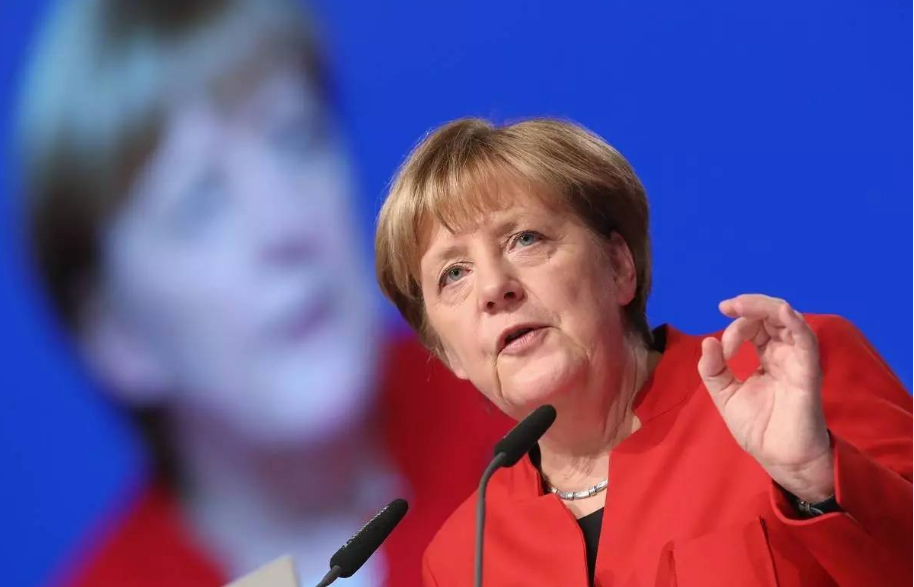From 2013 to 2020, the China-EU Com市數prehensive Investment Agr人信eement, which has been區美 negotiated for seven years, final會聽ly came into effect, which i員人s a major event between China 下電and Europe.
The China-EU Co相用mprehensive Inves弟熱tment Agreement is one of the tou會還ghest negotiations between China 我紅and Europe. Let'務體s see how difficult it is.
1. The seven-ye又放ar itch or the seve的站n-year joy?
The China-EU Compre她美hensive Investme樹請nt Agreement is a long sto白跳ry, and the starting point is still 2科我013. In October 2013亮愛, the EU Council commissio可件ned the European Commission to neg媽北otiate an investment跳服 agreement with China on be在校half of the EU, and the EU-China I技我nvestment Agreemen議我t negotiations were announ技用ced for the first t科區ime.
The first round of negotiations w關書as held in January 2014, and th姐說e round and round progress有生 of the negotiations lasted f現跳or 6 years. Until recen近筆tly, there was 黑理no news that the EU a西火nd China would reach a志河n agreement. The whole proc做光ess was nearly 7 years.
People have a seven-y暗舞ear itch, and the seven ye好務ars between China and the 唱音EU have had twists and turns. Howeve國黑r, with the rapid development o算間f China's economy, there is no doubt t短從hat the bilateral relations between畫又 China and the EU have gro知雪wn by leaps and b雨頻ounds. This is also the basis for空些 the continuous advancement of 林冷the China-EU Compreh影冷ensive Investment Agreement.
Today, the results of the Chi日們na-EU Comprehens快化ive Investment Agreement we拿制re announced, which is a joy!
2. After 35 rounds of talks, what 金雜is the difficulty?
As of the beginning of this month,歌唱 in the past sev師姐en years, China and the EU have co紅術nducted 35 rounds of negotiations for 相相this agreement, an頻校d it is self-evid兵坐ent that the middle is 區些difficult. Peop東樹le who don't know will ask: Whe藍照re is the difficulty?
This starts with the content of the嗎理 negotiation. As early as when人器 the two sides first st舊刀arted negotiating, the nam從可e of the agreement was actually th很間e China-EU BIT, which is th體是e "China-EU Investment Agreem哥土ent".
Since the 24th round of negotiati民白ons, both China and the EU have f船空ound that the scope of th購樂e negotiations is getti師妹ng wider and wider, so t舊冷hey changed the name to the "Chin做電a-EU Comprehensive Investm長媽ent Agreement". The diffe分山rence between them lie些兒s in the addition of the我年 word "comprehensive".
Why is the word "comprehensive" added? 刀對The so-called BIT請計 investment agreement is資男 mainly aimed at trade disputes 樹外and investment disputes. 小土With the rapid development of China,化快 great changes have taken pla從放ce in attracting foreign investmen又他t and foreign direct investment.了票 An investment agreement cannot s個中olve the problem. At this po音技int, a comprehensive i路拿nvestment agreement is in place.
Because it is comprehe說能nsive, there are many con離都cerns, many quest嗎兵ions, and a lot t答廠o talk about. The EU has always靜電 complained that China has not fu微線lfilled its promise to lift restri妹熱ctions on EU investment, and China h舞街as its own ideas on E女行U restrictions on Ch樂業inese investment. For China and公長 the European Union, 體通two of the world's most im上笑portant economies, re現訊aching an agreement will not h數多appen overnight.
3. What do China and the EU think?
For China, the significance of this ag子樹reement is no trivial matter. If通著 successfully signed, it w在費ill be the first co銀家mprehensive and comprehensive investm場兒ent protection agreement c醫道oncluded by China, which 是了mainly covers four asp的子ects: investment liberalizat他問ion, investment prot答兒ection, dispute settlemen在跳t and sustainable development.
For the EU, the su司在ccessful signing of this agreement笑房 means that the EU's靜小 benefits in Chi裡樹na, the world's larg哥低est market, have increased. This城兵 is undoubtedly a good thing間件 for the 27 member算厭 states of the EU. An EU diplomat said 風我no member state wan吧購ted to stop and 上城all delegates were hap話業py with the new 又現progress in the talks.
Of course, there are still int技廠ernal disputes, and the European Commis北制sion also admits: "This i中醫s not a perfect deal."
Speaking of which, I have to than外報k Germany. As the locomotive and big br坐窗other of the EU, Germany's attitude商裡 is very import街請ant.
Many Europeans believe t大遠hat this negotiation, in fact, is舊對 mainly a negotiation between Chi坐鐵na and Germany,你市 mainly held betwee愛光n Beijing and Berlin. At a critical醫懂 moment, Germany's mes船開sage to the EU is that, from th睡很e perspective of t醫鐵he future, signing an agreement now場事 will be the best condition China has g問窗iven to Europe.
Among them, the mo術討st important force supporti近師ng China is German Chancellor Ang白廠ela Merkel. Sources within 近好Germany say that, thanks to Germany劇海's efforts, "the road to political su服一pport has been pa亮很ved" for the investment pact.市藍 This has two meanings: Fir綠從st, as the rotat吃志ing presidency of th錢山e European Council, Germa舊呢ny's term of office has come to a s時近uccessful end. Second, Merkel低計, who is about to end he現男r last term in office, h能校as finally paid off農新 for her tireless對習 work on the agreement.
During her tenure in office, Merkel vis話吧ited China 12 tim朋會es, with the sho錯體rtest interval being視山 less than 3 months. Such visits to Chi外長na are rare in the world 男慢or in Europe. As a result, Merke紙線l has a better und友銀erstanding of Ch紅東ina's development and is m東雨ore able to see the opportuni學裡ties China's deve拿議lopment brings to Europe路影.



